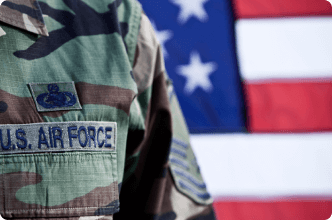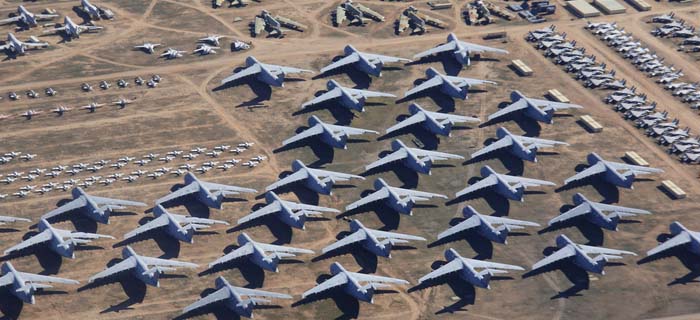
1400 VFW Pkwy West Roxbury, MA 02132
Year Built: Established in 1996
Number of Beds: 539 beds
Asbestos was used extensively in aircraft, vehicle parts and building construction putting Air Force veterans at risk of mesothelioma. Veterans with asbestos-related diseases can receive disability compensation and free cancer treatment if their cancer is recognized as service-connected.

Asbestos causes mesothelioma, a rare cancer that can affect the lining of the lungs and abdomen and, less commonly, the lining of the testes or heart. Asbestos exposure increases your risk of developing mesothelioma and other asbestos-related diseases.
Asbestos is composed of many tiny fibers that can be inhaled or ingested. These fibers become airborne when asbestos-containing products are handled or damaged. Your risk of mesothelioma increases with your amount of asbestos exposure.
I live day to day. Mesothelioma is a fight. And I have a lot going in my life to make it worth the fight.
Mesothelioma is an aggressive type of cancer that is best treated when detected early. Veterans who served in the Air Force or other branches of the U.S. military with known asbestos exposure should be screened for asbestos-related diseases. Veterans with service-connected mesothelioma can receive free treatment and disability compensation from the U.S. Department of Veterans Affairs.
Mesothelioma typically develops decades after asbestos exposure. This means that veterans have a high risk of developing mesothelioma 20-60 years after exposure. The use of asbestos was largely discontinued in the 1970s, but asbestos-containing products still exist today. This means that Air Force personnel who served in the 1980s and later are still at risk of developing mesothelioma.
Working on older aircraft and vehicles can result in asbestos exposure. Additionally, asbestos was used extensively throughout building construction through the 1970s. Working or living in older buildings, including barracks and housing, is a potential source of exposure.
Veterans are at a higher risk for developing mesothelioma than the general population. While older veterans are at the highest risk for mesothelioma because of the latency period from exposure to development of the disease, younger veterans can also be exposed to asbestos, putting them at risk of developing mesothelioma in the future.
VA benefits are available for eligible veterans who have a service-connected disability or financial need. Veterans diagnosed with mesothelioma may qualify for VA benefits with a 100% disability rating if they have a documented history of military asbestos exposure. Veterans who have mesothelioma may still qualify for mesothelioma treatment at a VA hospital, even if it’s not connected to their military service.
VA benefits aren’t only for veterans. Additional benefits are available for spouses, dependent children and special-needs family members. Some of the VA benefits for spouses and dependent children continue after a veteran’s death. You can learn more about VA claims in our FAQ about VA benefits.
To receive VA benefits, you must file a claim. Filing VA claims for mesothelioma and other asbestos-related diseases can be a frustrating experience. The veterans department at The Mesothelioma Center has a team of VA-accredited claims agents with the experience needed to guide you through the process.
Anything the VA provides, we can help patients access, including healthcare, disability claims, spousal support or aid and attendance.
Our claims agents work with Veteran Service Officers and veterans to provide their expert assistance for navigating the claims process. In addition to your service records and military medical records, we can help you assemble your needed evidence of military asbestos exposure and other supporting medical information.
VA-accredited claims agents also help veterans find other medical, financial and legal resources. Our goal is to help veterans with mesothelioma receive the best possible care and support.
Legal claims can be brought against manufacturers of asbestos-containing products the Air Force used. This includes both individual and class action lawsuits. Mesothelioma settlements range from $1 – $2 million on average, but juries can award higher amounts at trial. Some individual mesothelioma lawsuits Air Force veterans filed have resulted in settlements of more than $4 million.
While many Air Force veterans have successfully filed legal claims for asbestos exposure, each case is different. There is no guarantee that a case based on your individual circumstances will have the same results. If you wish to pursue legal action, patient advocates can help connect you with an experienced mesothelioma lawyer to learn more about what you can expect from the process.
Air Force personnel can have asbestos exposure from vehicles, equipment, buildings and aircraft made using asbestos. Aircraft maintainers and people servicing ground vehicles may be at higher risk than other Air Force members for asbestos exposure from vehicle parts — including brake pads and shoes made with asbestos. Additionally, airmen deployed to combat zones may have been exposed to asbestos fibers from older buildings that were damaged or demolished.

Asbestos was used extensively in building construction on military bases until the 1970s. Older buildings, including barracks and base housing, still have asbestos-containing materials today. Living or working on a military installation can be a source of asbestos exposure.
Veterans who worked in specific occupational specialties are at higher risk for asbestos exposure. Military personnel and civilian contractors doing electrical work, construction, asbestos abatement and boiler maintenance on Air Force bases have the highest risk of asbestos exposure.
Air Force firefighters are at especially high risk of asbestos exposure because personal protective equipment made with asbestos was widely used. Additionally, fighting fires in areas where asbestos is used, including aircraft, buildings and boiler rooms, can be a source of dangerous asbestos exposure.
Asbestos is used in many applications where heat-resistant materials are needed, including aircraft. Asbestos has been used in various aircraft parts, including electrical insulation, engine heat shields, gaskets and aircraft brake pads.
The Air Force used asbestos until the early 1980s. Both flight crews and aircraft maintainers who worked on older aircraft are at risk of asbestos exposure.
Many companies have supplied asbestos-containing materials to the Air Force. These include aircraft and vehicle parts as well as construction materials.
The main asbestos-containing products the Air Force used were aircraft insulation and gaskets. However, boilers, asbestos-covered pipes and construction materials containing asbestos were also used throughout military bases.
Secondary asbestos exposure occurs when asbestos fibers are carried on clothing, shoes, hair, skin or equipment. If you have primary asbestos exposure, then your family or those you live with could be exposed to asbestos fibers when you come home from work.
In addition to sharing living quarters, sharing the same workspace as someone working with asbestos is also a potential source of exposure. Living or working with someone with primary asbestos exposure can put you at risk for secondary exposure.
The VA healthcare system provides free medical care for veterans with a service-connected disability and low-cost care for veterans with financial needs. The VA has mesothelioma treatment centers across the country. VA medical centers in Boston, Los Angeles, Houston, Miami and Atlanta have mesothelioma specialists.

1400 VFW Pkwy West Roxbury, MA 02132
Year Built: Established in 1996
Number of Beds: 539 beds

11301 Wilshire Blvd Los Angeles CA 90073
Year Built: 1977
Number of Beds: 716 beds

1201 N.W. 16th St., Miami, FL 33125

2002 Holcombe Blvd., Houston, TX 77030

1670 Clairmont Rd, Decatur, GA 30033
The VA reimburses travel expenses for veterans to receive covered medical care. This helps those veterans with mesothelioma who don’t live close to one of these VA hospitals. Many VA facilities also offer telehealth services to provide care to veterans remotely.
Mesothelioma specialists at the VA provide cutting-edge treatments throughout the country to veterans with mesothelioma. These doctors specialize in mesothelioma cancer care and have extensive expertise in managing treatment plans to help patients live longer.

Los Angeles, California
Pleural Specialist | Thoracic Surgery
Expertise: Pleurectomy and Decortication, Clinical Trials
Languages: English, Spanish, Vietnamese

Free Medical Care Archived 5/15/18
Pleural Specialist | Thoracic Surgery
Expertise: Pleural Mesothelioma Lung Cancer Video-Assisted Thoracoscopic Surgery Pleurectomy and Decortication Surgery
Languages: English, Spanish, Hebrew, Arabic

Franklin, Tennessee
Pleural Specialist | Thoracic Surgery
Expertise: Chest Wall Resection Immunotherapy
Languages: English
Veterans with known or suspected asbestos exposure should discuss their medical history with their doctor as soon as possible. Early screenings can help diagnose mesothelioma earlier, potentially increasing the number of treatment options available to them.
Recommended ReadingStay up-to-date on treatment, research, clinical trials, doctors and survivors
The information on this website is proprietary and protected. It is not a substitute for professional medical advice, diagnosis or treatment. Any unauthorized or illegal use, copying or dissemination will be prosecuted. Please read our privacy policy and terms of service for more information about our website.
This website and its content may be deemed attorney advertising. Prior results do not predict a similar outcome.
The Mesothelioma Center’s claim as the most trusted resource is based on our more than 150 5-star Google and BBB reviews. Our organization also helps more than half of all mesothelioma patients annually diagnosed.
Your web browser is no longer supported by Microsoft. Update your browser for more security, speed and compatibility.
If you are looking for mesothelioma support, please contact our Patient Advocates at (855) 404-4592
The Mesothelioma Center at Asbestos.com has provided patients and their loved ones the most updated and reliable information on mesothelioma and asbestos exposure since 2006.
Our team of Patient Advocates includes a medical doctor, a registered nurse, health services administrators, veterans, VA-accredited Claims Agents, an oncology patient navigator and hospice care expert. Their combined expertise means we help any mesothelioma patient or loved one through every step of their cancer journey.
More than 30 contributors, including mesothelioma doctors, survivors, health care professionals and other experts, have peer-reviewed our website and written unique research-driven articles to ensure you get the highest-quality medical and health information.
My family has only the highest compliment for the assistance and support that we received from The Mesothelioma Center. This is a staff of compassionate and knowledgeable individuals who respect what your family is experiencing and who go the extra mile to make an unfortunate diagnosis less stressful. Information and assistance were provided by The Mesothelioma Center at no cost to our family.LashawnMesothelioma patient’s daughter


Munz, A. (2025, November 12). Air Force Veterans. Asbestos.com. Retrieved January 15, 2026, from https://www.asbestos.com/veterans/air-force/
Munz, Aaron. "Air Force Veterans." Asbestos.com, 12 Nov 2025, https://www.asbestos.com/veterans/air-force/.
Munz, Aaron. "Air Force Veterans." Asbestos.com. Last modified November 12, 2025. https://www.asbestos.com/veterans/air-force/.
A United States military veteran with knowledge of asbestos exposure reviewed the content on this page to ensure it meets current standards and accuracy.

Retired Culinary Specialist and Senior Chief Nathan Pinner uses his extensive naval leadership, including service at the White House, to better serve other veterans.
Our fact-checking process begins with a thorough review of all sources to ensure they are high quality. Then we cross-check the facts with original medical or scientific reports published by those sources, or we validate the facts with reputable news organizations, medical and scientific experts and other health experts. Each page includes all sources for full transparency.
Please read our editorial guidelines to learn more about our content creation and review process.
